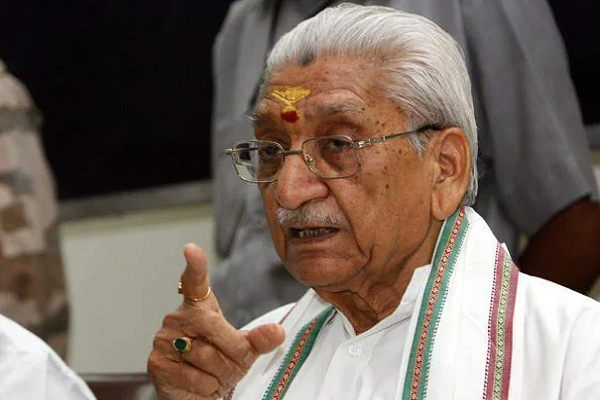Outrage in India As BJP Minister References Anti-Muslim Massacre in Victory Message

The BJP minister in the Indian state of Assam state has sparked outrage after invoking a codeword associated with the 1989 anti-Muslim massacre while celebrating the National Democratic Alliance’s landslide election victory in Bihar.
Ashok Singhal, a cabinet minister in the BJP-led Assam government, posted a photo of cauliflower fields on X with the caption: “Bihar approves gobi farming.” The post appeared within hours of the NDA’s win and triggered immediate backlash from civil society figures and community groups.
For many Indians, particularly Muslims, the phrase is widely recognized as a dog-whistle referring to the 1989 Bhagalpur pogrom, one of India’s worst episodes of anti-Muslim violence. Critics said the timing of the remark, posted amid heightened political tensions after the election, made it even more inflammatory.
During the Logain massacre, one of the most notorious incidents of the Bhagalpur violence, 116 Muslims were killed and their bodies dumped into pits. Cauliflower and cabbage saplings were planted over the mass graves to conceal them. The phrase later resurfaced on social media, where Hindu nationalist accounts have used it as a coded threat aimed at Muslims, often after political victories or during communal flare-ups.
Read More:
Survivors and local residents have long said that references to cauliflower fields invoke painful memories of the killings. Community activists called Singhal’s post deeply insensitive and said it reopened wounds for families still seeking justice.
Bhagalpur unrest of 1989
The Bhagalpur violence erupted at the height of the Ram Janmabhoomi movement, led by the Vishwa Hindu Parishad, which was campaigning for the construction of a temple at the site of the Babri Masjid. The mobilization fueled anti-Muslim sentiment across northern India.
Government data records around 1,070 deaths over nearly two months of violence, with 93 percent of the victims being Muslim. More than 48,000 people were displaced and around 11,500 homes were destroyed across nearly 200 villages. At least 68 mosques and 20 Sufi shrines were demolished.
Bhagalpur’s silk industry, dominated by Muslim artisans, was also devastated. Around 600 power looms and 1,700 handlooms were burned, collapsing an economic lifeline for families who had worked in the craft for generations.
Read More:
Singhal’s post drew swift criticism from social media users, rights activists and political commentators. Many noted that while extremist supporters of the ruling BJP often use the term online, it is unusual and alarming for a sitting minister to invoke it publicly. Critics said this reflects a broader trend in which rhetoric associated with communal violence is being normalized in political discourse.
Singhal has not responded to the backlash, and the Assam government has not issued a statement.
Source: 5pillarsuk.com



